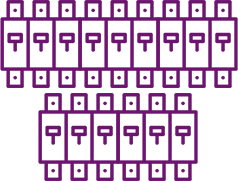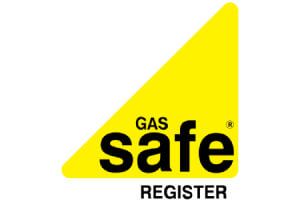Fuse Box Installation: 6 Way Consumer Unit £48010 Way Consumer Unit £52015 Way Consumer Unit £560Skeleton Board £590
Fuse Box Installation: 6 Way Consumer Unit £48010 Way Consumer Unit £52015 Way Consumer Unit £560Skeleton Board £590
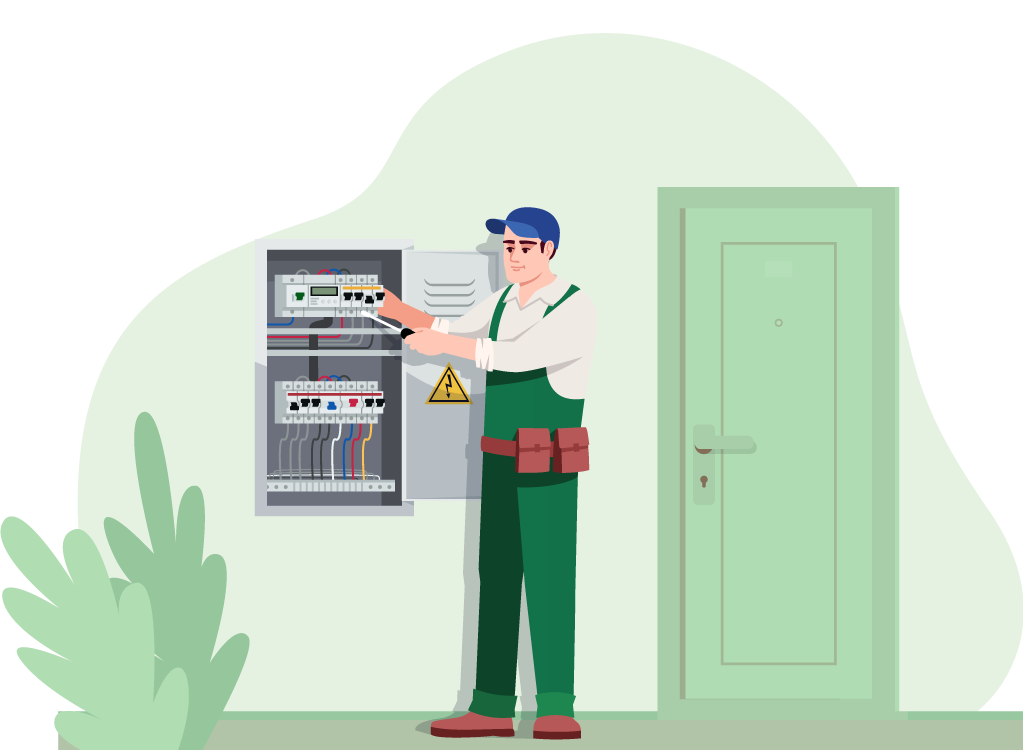
Fuse Box Installation
Start from £480
All inclusive (No hidden Cost)
*£5 Parking Charges are applicable in case of paid parking.
*£15 Congestion Charge applicable in case the property is in congestion charge zone
NICEIC Certified Electrician
If you’re looking for a professional and NICEIC certified electrician to install your fuse box, look no further than Landlord Certificate London. We’re here to help you get the job done right, and we’ll make sure that everything is installed properly and safely.
We’re also available 24/7 for any emergencies that may arise. Give us a call today to get started!
*£5 Parking Charges are applicable in case of paid parking.
*£15 Congestion Charge applicable in case the property is in congestion charge zone
NICEIC Certified Electrician
If you’re looking for a professional and NICEIC certified electrician to install your fuse box, look no further than Landlord Certificate London. We’re here to help you get the job done right, and we’ll make sure that everything is installed properly and safely.
We’re also available 24/7 for any emergencies that may arise. Give us a call today to get started!
Our Services Include
Secure Installation
Our Fuse box installation service involves installing a device that contains fuses to protect electrical circuits in a building. This typically involves connecting the main power feed to the fuse box, installing fuses or circuit breakers for individual circuits, and connecting the circuits to their corresponding outlets or fixtures.
Secure Installation
Our Fuse box installation service involves installing a device that contains fuses to protect electrical circuits in a building. This typically involves connecting the main power feed to the fuse box, installing fuses or circuit breakers for individual circuits, and connecting the circuits to their corresponding outlets or fixtures.
Certified Electricians
It is important to note that in the UK, it’s mandatory for all electrical work to be certified and notified to the local building control. Therefore, it is important that the installation of a fuse box in London is done by a qualified and certified electrician who is able to provide the necessary certification and notification. And if you are looking for a professional then you are at the right place. Additionally, in London, as the city is older than other places, the buildings are also older, which means that the fuse box might not be up to date with the current regulations and it might need to be upgraded or replaced. We as qualified electricians will be able to advise on this and provide a solution.
What is a Consumer Unit?
A consumer unit is the main electrical control panel in a home.
The consumer unit will contain circuit breakers or fuses that protect the home’s electrical circuits from overload. Any time there is an issue with the electrical system, the consumer unit should be the first place to check.
In the United Kingdom, consumer units must meet certain standards set by the government. These standards ensure that consumer units are safe and reliable.
Some of the standards that consumer units must meet include:
Being made from non-combustible materials.
Having a minimum IP rating of IP2X.
Being able to withstand a voltage of 1,000 volts.
Consumer units must also be equipped with certain safety features, such as:
A main switch that disconnects all live conductors.
Residual current devices (RCDs) that protect against electrocution.
Overcurrent protection devices (OCPDs) that protect against fire.
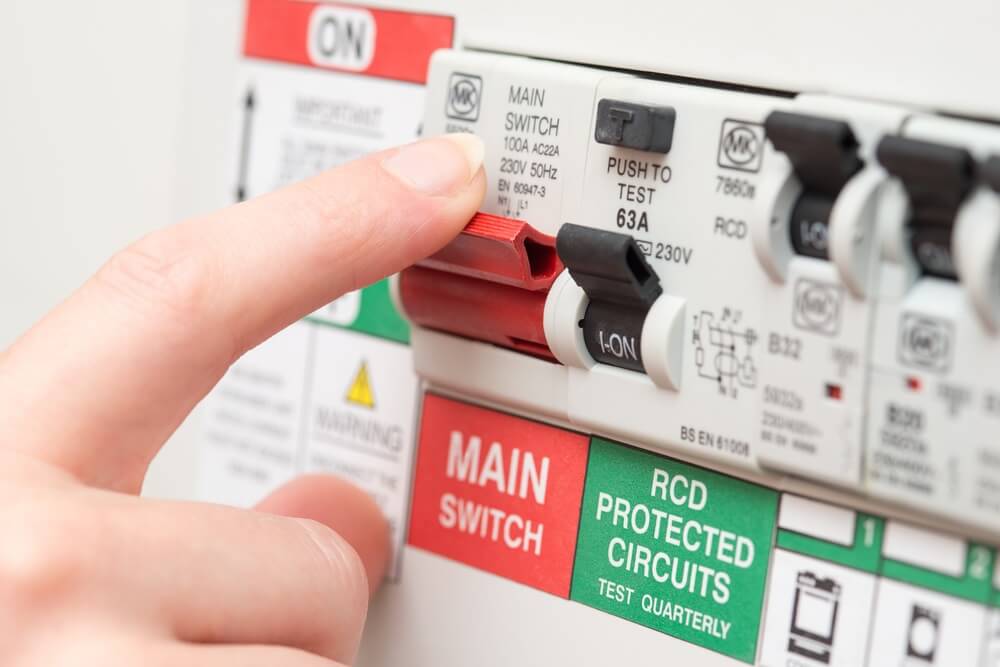

What is a dual RCD Protected Consumer Unit?
A dual RCD protected consumer unit is a type of electrical consumer unit that has two RCD (residual current device) units installed. This provides extra protection against electrical shocks and fires, making it an ideal choice for homes and businesses. RCDs are devices that detect any current flowing through the earth, so if there is a fault in an electrical circuit, the RCD will trip and cut off the power supply. The RCD Monitors the amount of current flowing in and out of an individual circuit, if the flow of current is not the same, it will automatically trip the breaker, when the amount of current flowing inside a breaker and the amount of current flowing outside of the breaker is not the same this means that the current is being leaked somewhere in the wiring. This makes dual RCD protected consumer units much safer than standard consumer units.
How many Type of Consumer Units are available in the market?
Standard units
Standard units are the most basic type of consumer unit, and they typically have one main fuse or circuit breaker.
Dual RCD units
Dual RCD units have two main fuse or circuit breakers, which can provide additional protection against electrical faults.
Split load units
Split load units have a main fuse or circuit breaker and a separate sub-circuit breaker, which can be used to isolate specific areas of the property in the event of an electrical fault.
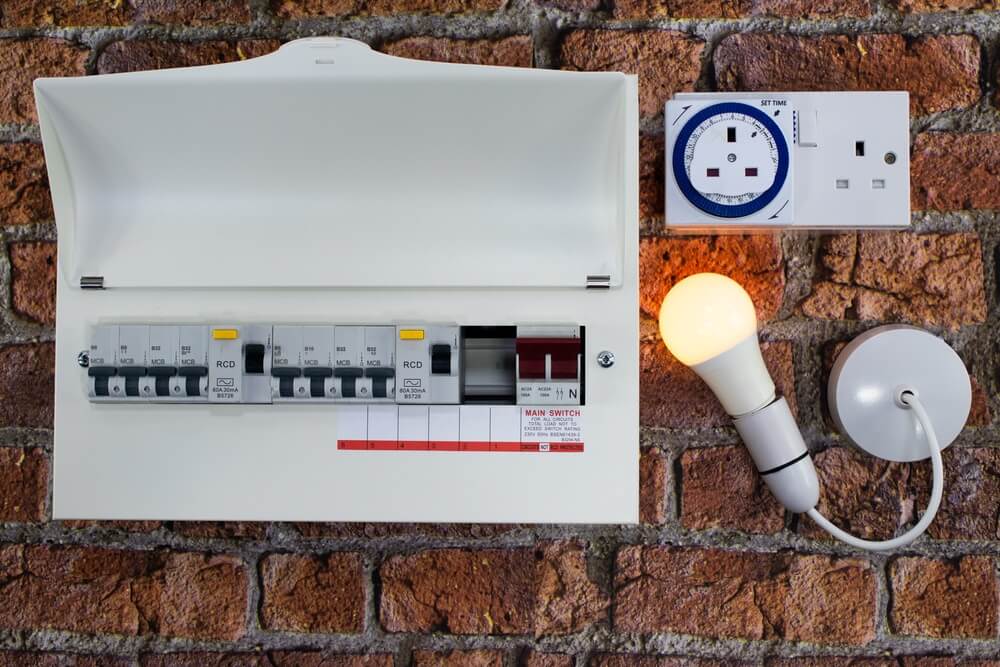
Do Properties need metal consumer unit as per UK Law?
As of Amendment 3 to the 17th edition of wiring regulations, metal consumer units have been a requirement in ‘NEW INSTALLATIONS.’ In actuality, this rule went into effect on 1st January 2016 for new consumer unit installations. We hearing from landlords that they are having electrical safety tests completed and failing because they do not have an up-to-date ‘new metal consumer unit’ or ’18th edition consumer unit.’
To be honest, each electrician has to use their own engineering judgement to produce an EICR.
There are guides to EICR Coding, however these cannot account for all situations as risks vary depending on the context. This is where a skilled and competent electrician will rely on their experience and intuition.
Importance of Replacing Fuse Boxes
Replacing fuse boxes is an important task in the United Kingdom that should be addressed, as it can greatly enhance the safety and functionality of an electrical system. Fuse boxes, also known as fuse panels or breaker boxes, are responsible for distributing and protecting electrical power throughout a home or building.
Increased Safety:
Upgrading to a modern circuit breaker panel can provide many benefits, including increased safety and improved functionality. Circuit breaker panels can detect and respond to power surges and other issues much more quickly and effectively than fuse boxes, which can greatly reduce the risk of electrical fires. They also can handle the power demands of modern appliances and electronics, preventing power outages and improving overall performance.
Eliminate Poor Electrical Connections:
Another important reason for replacing fuse boxes is that, as time passes, fuse boxes may become corrupted or damaged due to age and wear and tear. This can lead to poor electrical connections and increased resistance, which can cause power outages and other issues. A modern circuit breaker panel will be less likely to experience these issues as it is made from more durable and corrosion-resistant materials.
To Meet Current Safety Standards:
In addition, many older homes still have a fuse box that may not have been updated in decades. The wiring may need to be updated and meet current safety standards. Updating a modern circuit breaker panel will ensure that the electrical system is up to code and meets current safety standards.
Drawbacks not to changing fuse boxes
There are several drawbacks to keeping an outdated fuse box. Some of these include:
- Safety hazards: Old fuse boxes may have different safety features than newer ones, increasing the risk of electrical fires and other hazards.
- Inefficiency: Fuse boxes that are not up to date can cause power outages and inefficiencies in the electrical system.
- Limited capacity: If a home’s electrical needs have changed, the fuse box may not be able to handle the increased load, resulting in blown fuses and power outages.
- Difficulty with maintenance: Older fuse boxes can be more difficult to maintain, making it harder to identify and fix problems.
- Lack of compatibility with modern appliances: Many modern appliances require more power than older fuse boxes can supply, leading to blown fuses, power outages, and even damage to the appliances.
- Difficulty selling your property: Many home buyers consider the electrical system’s age and condition when buying. An outdated fuse box may make your property less attractive to potential buyers and could result in a lower sales price.
How often should you replace a fuse box?
Fuse boxes should be inspected and potentially replaced if they are outdated or malfunctioning. The National Electric Code recommends that electrical panels be inspected every 10 years and replaced if they are more than 40 years old.
However, if you are experiencing issues such as tripped breakers or blown fuses, it may be necessary to have the panel inspected and potentially replaced sooner.
How do I know if I have an old-fashioned fuse box?
If you are still determining if you have an old-fashioned fuse box, there are a few key characteristics to look for.
Location of the box:
First, check the location of the box. Older fuse boxes are often located in a utility room, basement, or garage, while newer circuit breaker panels are typically found near a home’s main electrical service entrance.
Presence of fuses:
Another indication that you may have an old-fashioned fuse box is the presence of fuses rather than circuit breakers. Fuses are small cylindrical devices that screw into the panel and contain a wire that melts if too much current flows through it. On the other hand, circuit breakers are toggle switches that can be flipped on and off to control the flow of electricity.
Less capacity for power:
Lastly, an old-fashioned fuse box may also have less capacity for power. The number of circuits that an old-fashioned fuse box can handle is typically limited, and the box may need more room for additional circuits.
It is important to note that if you have an old-fashioned fuse box, it may not handle the electrical demands of modern appliances and devices. It can be a fire hazard, and it is recommended that you have your fuse box inspected by us as we are licensed electricians to determine if an upgrade is necessary.
Frequently asked questions.
The time it takes to install a fuse box can vary depending on the complexity of the electrical system in the home and the experience level of the electrician. On average, installing a new fuse box can take a few hours to a full day. However, if the installation involves upgrading or rewiring the entire electrical system, the process can take several days or longer.
A fuse box is typically installed in a central location in the home, such as a utility room, garage, or basement. The main service panel should be easily accessible so the electrician can safely and easily perform necessary maintenance or repairs. It is also important to note that the panel’s location must comply with the local building and electrical codes.
It is not recommended for an untrained person to replace a fuse box themselves. Replacing a fuse box requires knowledge of electrical systems and the ability to work with high-voltage wiring, which can be dangerous if not done properly. Additionally, local building and electrical codes require that a licensed electrician perform electrical work.
The cost of the fuse box installation can vary depending on several factors, including the type of fuse box being installed, the complexity of the electrical system, and the home’s location. On average, installing a new fuse box can range from $300 to $1,500, but it can be higher or lower depending on the job’s specifics. It is best to get a quote from a licensed electrician to determine the exact installation cost in your specific case.




